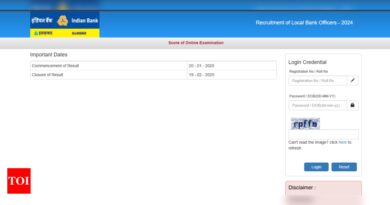Payroll Software Vs. Payroll Services: Differences + Pros & Cons
Payroll Software Vs. Payroll Services: Differences + Pros & Cons
Managing payroll is a process of great gravity for any business, whether they are employing a dozen or a thousand employees. However, ensuring the accuracy of payroll processing, tax compliance, employee benefits, etc., can be quite daunting. For this reason, businesses rely either on payroll software or payroll service providers. In this comprehensive guide, you will learn all there is to know about payroll software vs. payroll services, including their individual features, pros and cons, main differences, and tips to make the most suitable choice for your business.
What’s Inside This Guide…
What Are Payroll Services?
Payroll services refer to third-party organizations that can take on and manage all aspects of your payroll process. They handle a handful of tasks, from salary and tax calculation to tracking employee hours and issuing payments. Below, you will find some of the key features they offer.
Key Features Of Payroll Services
Payroll Processing
Payroll service providers completely take on the calculation of wages, salaries, bonuses, benefits, deductions, overtime, and any other forms of contribution or compensation.
Tax Compliance
Different countries, states, or even cities have to adhere to different payroll laws and regulations. Payroll service providers make sure your organization is compliant with them.
Employee Self-Service Portals
These platforms allow employees to easily access their payment slips, tax documents, or any other information and documents they may need for legal or personal reasons.
Direct Deposit Options
This feature allows diversity in payment methods to accommodate the preferences of their employees and the organization.
Reports And Analytics
Payroll service providers can provide any report you need, whether you need to estimate total payroll costs, tax payments, or other expenses.
Benefits Management
Each business offers its staff different benefits, such as health insurance or retirement plans, and payroll service providers must be flexible in managing them.
Customer Support
This feature ensures that your organization will have someone to turn to whenever there are questions, concerns, or issues regarding the payroll process.
Pros Of Payroll Services
Which benefits can you expect when working with a payroll service provider?
Time-Effectiveness
The most important benefit you can expect from outsourcing payroll to a third-party company is the valuable time it saves. A collaboration with a payroll service provider means that all the time-consuming tasks associated with payroll, such as calculating overtime or estimating benefits, are now carried out by your outsourcing partner.
No Staff Needed
Leading off of the previous benefit, outsourcing your payroll process means that you don’t need a dedicated team for this purpose. This allows you to either employ fewer people or have your employees work on tasks that are essential to promote organizational goals and drive success.
Cost-Effective
There are various reasons why payroll services may prove to be a cost-effective solution. First, outsourcing costs are often lower than a subscription for payroll software. In addition to that, you can subtract from the annual payroll costs the expense of hiring a dedicated team for payroll management.
Accuracy Guaranteed
A provider with more experience and robust tools for payroll processing will possibly complete the process with almost total accuracy. Minimizing errors in payroll is essential for keeping your workforce happy and engaged.
Cons Of Payroll Services
Not everything is positive when outsourcing your payroll to a third-party company. Let’s see which payroll service disadvantages you need to take into consideration.
High Cost
Although hiring a third-party company to handle payroll may be a cost-effective solution for some businesses, this is not always the case. Most payroll service providers charge a high one-time or recurring contract fee for every payroll cycle. These numbers stack up depending on the size of the organization, meaning that a significant amount of money could be dedicated to a purely administrative task such as payroll.
Unnecessary Delays
When payroll processes are carried out externally, businesses might find it more difficult to access specific data when they want it. The time it might take to communicate with the payroll service provider and receive a response should be a downside to consider before outsourcing.
Limited Control
When you agree to collaborate with an outsourcing provider, you sign up for a specific set of services. However, businesses with specialized payroll requirements might find this challenging, as it might be difficult for them to customize features to their exact preferences.
Data And Security Risks
Although most payroll service providers claim to safeguard your sensitive information and are even equipped with robust data security features, the risk of a breach can never be eliminated. Besides, well-known companies that manage data from multiple sources are often attractive targets for cyber attacks.
What Is Payroll Software?
In contrast with payroll services, payroll software is a solution that allows businesses to manage the entirety of the payroll process internally. Through a variety of tools and capabilities, payroll software reduces human intervention as much as possible and automates many of the time-consuming tasks related to payroll. Let’s explore some of its main features.
Key Features Of Payroll Software
Automated Payroll Calculation
This is the main feature of payroll software, and it includes the accurate and automatic calculation of gross and net pay, hourly pay, benefits, and deductions for each and every employee.
Tax And Legal Compliance
The software estimates and processes tax deductions in compliance with federal, state, and local laws and regulations.
Time Tracking Integration
Time tracking and attendance tools are often integrated into payroll software to monitor employee attendance, work hours, overtime, etc., and ensure the accuracy of compensations.
Employee Data Management
A payroll software, just like payroll services, stores and manages all important employee data, such as name, address, bank account number, as well as performance reports, employee contracts, and other essential documents.
Direct Payments
The software must be able to handle direct and safe payments to employees’ bank accounts at the end of each pay cycle.
Employee Self-Service
Employee information must be accessible not only to administrators and HR but also to employees themselves, who might want to view their tax forms, pay stubs, or other documents.
Benefit Calculation Integration
Manually calculating contributions towards retirement, health insurance, and other benefit plans can be challenging. Payroll software can automate this process and ensure it is carried out accurately for each employee.
Analytics And Reporting
With the right payroll software, you can generate any report you might need, whether it is for an audit or financial planning.
Pros Of Payroll Software
Which benefits come with working with a payroll service provider vs. payroll software?
Total Control
Unlike payroll services, payroll software gives you complete control over all aspects of the payroll process. This means that you don’t have to depend on third-party providers to make decisions and implement changes you believe are necessary based on the needs of your organization and your workforce.
Cost-Effective
Despite the initial investment required to access a payroll solution, it is often much lower than paying another company to handle payroll externally. Payroll software also helps you cut costs in the long run by minimizing human errors, which can cost more money in legal fees or high employee turnover.
Saves Time
Payroll is made up of numerous tedious and time-consuming tasks that force your employees to waste valuable work hours. However, payroll software can automate these processes, allowing staffers to spend these hours doing meaningful work that promotes organizational goals and drives your business forward.
Increases Safety And Security
It goes without saying that payroll service providers take measures to secure sensitive employee data. However, internally managed software empowers you to take additional security measures, such as encryption, firewalls, or 2FA, and update them accordingly. This way, you will be certain that all information is safe from cyberattacks.
Facilitates Data Access
Having all payroll and employee data stored in a payroll solution your organization manages means that any piece of information, document, or report is only a click away. You don’t have to message a third-party company and wait for their response. This way, decision making becomes more swift and effective.
Cons Of Payroll Software
Payroll software comes with challenges of its own, as one would expect. Let’s see what those are.
Time And Efficiency
Although payroll software helps you automate a large part of the payroll process, it remains time-consuming and often complex. Mistakes are up to your internal team to identify and correct, while regular updates are required to ensure organizational compliance with changing laws and regulations and software compatibility with any other tools you are using.
Staff And Manpower
The complexity of payroll in general and the management of the payroll software specifically makes a dedicated payroll team necessary. This might not be possible for smaller businesses with limited resources, which could lead to inefficiencies and even errors. For larger organizations with complex payroll procedures, this dedicated team may create a substantial dent in the company’s budget.
Errors And Penalties
An internal team can only have so much experience in payroll software management, which makes mistakes almost inevitable. Yet, these mistakes can cause frustration within your organization and, in some cases, even financial penalties if, for example, taxes are miscalculated. Data security is another issue requiring extra attention when payroll is done internally.
Up-Front Investment
A significant disadvantage that can discourage mostly smaller businesses from investing in payroll software is the high upfront costs. Apart from that, there might be hidden costs that come up when you want to use customer support or additional features of the software, such as adding more employees or enabling direct deposits.
Learning Curve
The final drawback of payroll software you need to account for is the learning curve. Naturally, your team will need some time to learn the ins and outs of the software in order to use it to its full potential. During that time, you might need to dedicate extra resources towards training instructors or a temporary payroll services plan.
Payroll Software Vs. Payroll Services: 5 Key Differences
It is certain that both payroll software and payroll service providers have their own merits, and one option may be more suitable for a certain business than the other. But how can you know which one to choose? Explore a few of their main differences in more detail to simplify the decision-making process.
1. Level Of Control And Customization
Payroll software allows businesses to execute all steps of the payroll process entirely in-house. This gives them a great—almost total—level of control over each step and procedure, allowing them to customize the software to meet their unique needs. This approach is more suitable for businesses that prefer a hands-on approach and have the resources to employ a dedicated team for payroll management.
On the other hand, a payroll service provider takes on the majority, if not the entirety, of responsibilities and tasks related to payroll. While this is beneficial for reducing your staff’s workload, it can decrease the level of customization you have access to. Third-party companies often have their own standardized processes and procedures, which you agree on at the beginning of your collaboration and over which you have minimal control.
2. Overall Costs
Payroll software typically requires a one-time purchase or a monthly subscription to access. Additional regular payments may also apply for maintenance, support, and upgrades, even if you are not on a subscription plan. While the cost of payroll software can rack up overtime, it can be a cost-effective solution in the long run for businesses with a steady number of employees and consistent payroll practices.
When it comes to outsourcing payroll to a third-party provider, the costs can vary greatly, as they depend on the number of employees and the overall complexity of the payroll process. Although these factors can cause expenses to rise significantly, they offer businesses a better defense against error as well as more time to allocate to other tasks.
3. Access To Support
When a business handles payroll using a software solution, the main source of knowledge and expertise is the internal dedicated payroll team. Of course, many providers offer technical support and access to communities and knowledge bases, but that doesn’t mean your team shouldn’t remain up to date with how the software operates or the latest tax laws and regulations. This can be particularly challenging for smaller businesses.
Payroll service providers provide access to a team of payroll professionals and experts who are always up to speed with compliance requirements and can answer any question accurately. If you believe that your business lacks the necessary expertise and knowledge regarding payroll and doesn’t have the resources to bring it on board full-time, then a third-party provider is probably the right choice for you.
4. Managing Legal Compliance
Payroll software helps businesses comply with laws and regulations by integrating tools that automatically calculate taxes and deductions. However, the responsibility for updating these automations when a law changes lies entirely with the business. And it is a serious responsibility as well, since miscalculations or missed deadlines may very well result in hefty fines.
Payroll services can help take this burden off of your shoulders by taking on the responsibility of complying with changing tax regulations. Besides, they are experts in payroll and the legal aspects that surround it, significantly reducing the chances of errors and their subsequent consequences. If the industry you are operating in has complex and/or strict regulations, perhaps outsourcing your payroll process is the smartest choice.
5. Adapting To Growth
The final difference you need to consider is how scalable and flexible each option is. Payroll software can often handle a small increase in employee numbers or the addition of new benefit or deduction categories. But if your organization’s payroll process changes in a drastic way or your workforce doubles, you might need to purchase an entirely new solution or switch to a more expensive subscription plan that offers advanced features. This can result in unexpected costs for training and a temporary decline in payroll efficiency while employees adjust to the new features or software.
Payroll services, on the other hand, offer a high level of flexibility, allowing you to add more employees and features without burdening your employees in any way. Of course, the fee to the payroll service provider may increase, but it might be a small sacrifice to make for having a perfect payroll service that evolves with your business.
Payroll Software Vs. Payroll Services: How To Choose Which Is Best For You
Now that you understand more about the main differences between payroll software and payroll service providers, it is time to explore some more factors that will affect your choice.
Assess Business Size And Complexity
The size of your business and the complexity of payroll processing within it are essential factors that will clarify whether you need to take on payroll internally or outsource it to a payroll service provider. Small businesses with relatively simple and straightforward payroll needs might find payroll software a more budget-friendly and practical choice. On the other hand, larger organizations that need to accommodate more complex payroll categories and requirements may not be able to find an in-house solution that can address all their needs. In this case, outsourcing payroll is a more beneficial option in the long run.
Consider Your Budget
It comes as no surprise that your available budget will play a great part in the decision-making process. If you want to manage payroll internally, you will be happy to hear that payroll software is, in general, the more cost-effective option between the two, requiring a lower initial investment and subscription fees. Payroll services are, as expected, more expensive because they offer a wider range of features as well as ongoing support and maintenance. Their high price is often justified by the peace of mind and convenience they offer businesses that collaborate with them.
Evaluate Internal Capabilities And Expertise
Before making a final decision, you must take into account your organization’s existing resources and expertise. For example, if you already have an experienced HR or accounting team, payroll software would be a logical choice, as it will only streamline in-house payroll management and free up time in your employees’ calendars. On the other hand, if you lack this expertise, the cost of finding and hiring these professionals might be too much to bear. In this case, the seemingly more expensive option of outsourcing payroll to a third-party company might be more cost-effective in the long run.
Review Compliance Requirements
Payroll software can help you keep up with compliance requirements by automating related processes. However, you need to remember that you will have to upgrade the system yourself if there is an adjustment in a law or regulation. If your business operates under complex or often changing regulations, managing payroll by yourself may become too intricate and result in expensive mistakes. If you want to reduce the risk of missing a deadline or miscalculating taxes, opt for outsourcing payroll to an external company. Payroll service providers are typically well-informed about the latest tax laws and regulations, making them more effective in compliance management.
Analyze Scalability Needs
The growth rate of your business is another factor that will affect your choice between payroll software vs. payroll service provider. Specifically, a rapidly growing business will only find short-term use for a payroll software solution, as its initial features may soon become unable to support the growing workforce. While upgrades and new features can be purchased, at a certain point, things will be too complicated to be taken care of internally. On the contrary, payroll service providers have significantly more tools available, which makes it easier for them to scale their services to match your business growth.
Determine The Importance Of Data Control
Your desired level of data control should be determined by whether you can afford a security breach or not. To be more exact, smaller businesses with tighter budgets and limited resources may not be able to handle the consequences of poor security. For them, a data breach or payroll fraud would be far more damaging than it would be for a larger business. Handling payroll in-house allows you to create a payroll process that is as secure and protected as you deem necessary. Outsourcing it, however, means that you have to rely on the security practices of another company and simply trust that they are up to your standards.
Look For Integration Needs
Before making a choice between payroll software vs. payroll service provider, you need to take inventory of the other systems your company uses, such as accounting, HR, time tracking, etc. Determine which of these systems you want to integrate with payroll. In most cases, payroll software allows direct integrations, while payroll service providers may provide less flexibility. Therefore, if multiple system integrations are a priority for you, you will either have to select a payroll software solution or carefully research your options in payroll service providers to find the one that meets your integration needs.
Test Customer Support And Service Quality
For a process as critical as payroll, reliable customer support is of utmost importance. If there is an issue at any stage of the payroll process, waiting multiple days for an answer or a solution is not a desirable scenario. Therefore, before committing to either choice, make sure to examine in detail the support options offered by your top payroll software and service provider options. Read reviews on their website and other platforms, explore social media to learn more about their success stories and not-so-successful moments, and seek feedback from colleagues who may have collaborated with them.
Request Demos And Trials
More often than not, the descriptions and reviews you read online do not adequately describe what it’s like to manage payroll using a certain solution or service provider. Therefore, if you have access to demos for software or trial periods for service providers, be sure to take advantage of them. During this testing period, you can understand more about the features, ease of use, flexibility, and complexity of each available option. This way, when you do make the final decision, you will be more certain that it is the right one and that your payroll needs are adequately met.
Conclusion
There is no denying that payroll is a critical process that deserves special attention for the success and smooth operation of your organization. The decision between payroll software vs. payroll service provider can make a great difference in how effective your payroll process will be and how negatively or positively it will impact your organizational resources. In this article, we took a deep dive into the details of payroll software and payroll service providers, highlighting the differences between the two. Armed with this information, we believe that you are ready to make the best decision that aligns with your business needs while ensuring compliance with tax regulations and employee satisfaction.




